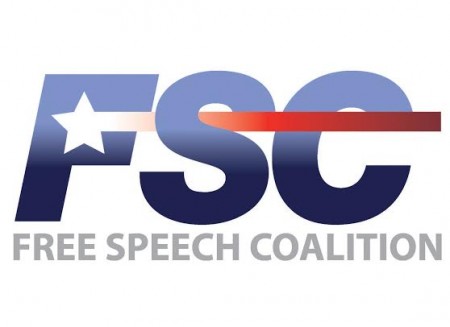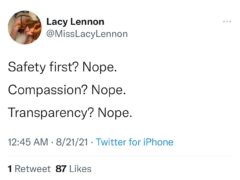.jpg) OP/ED by Jake Harris
OP/ED by Jake Harris
So a lot has happened since last I wrote an article here on LIB. Torrent sites have been shut down, Pink Visual believes that its content retreat was a success, and even in the face of outright defeat lawyers are still trying to convince us that they will succeed in prosecuting John Doe’s.
Let’s start by breaking down the legal action of the past six weeks. Remember those lawsuits I talked about in past articles? (https://www.lukeisback.com/?p=14683) The ones where lawyers were charging potentially thousands of individuals based on torrent tracking? Yeah, most of those lawsuits have been dismissed. It turns out that our legal system, supported by our tax dollars, is actually refusing to do the legwork that it requires copyright holders to do! Weird how our government actually helps its citizenry sometimes! This has the potential to be a pretty big article since I will be examining a lot of different angles and I’ll try and split everything up fairly neatly over two or three articles over the next week or so J
Here are the specifics of what happened. I’ll be speaking in generalities since each case is slightly different and each state/court has different protocols for case filings, etc…
1.) Numerous lawyers, or groups of lawyers, filed cases across the United States charging that large groups of people illegally downloaded/uploaded specific adult film titles via torrents. The main groups were in Texas where Larry Flynt Publications filed a group suit, in West Virginia where Ken Ford and his Adult Copyright Company filed a group suit, and in Federal Court where John Steele has filed numerous group suits.
2.) Here’s where things become difficult, muddy, and potentially frustrating. In a DC district court Judge Rosemary Collye was overseeing two cases involving mainstream movies and piracy. Similar to the porn piracy cases two lawsuits were brought that contained thousands of potential John Doe’s. After a period of time went by without prosecutorial progress the Judge required the group that brought the suits, US Copyright Group (USCG), to actually name the defendants in the case. They couldn’t do it. The reason being was that the ISP that the USCG went to in order to receive the names, Time Warner Cable, wouldn’t cooperate as quickly or efficiently as they wanted. Time Warner stated that the maximum number of names they would research and provide would be 28 per month, split evenly between the two cases. All in all it was going to take five years before the USCG could gather all the names it needed for the lawsuits and that length of time just wasn’t acceptable to the judge. In essence the judge told anyone who was wanting to proceed with a case of this nature that they needed to have all of the information up front and accessible in order to have their day in court. This poses a GIGANTIC problem for anyone wanting to do this in the future and I’ll elaborate on this in part two coming up soon. (http://arstechnica.com/tech-policy/news/2010/11/put-up-or-shut-up-time-for-us-copyright-group.ars) In a similar move Time Warner Cable said that it would only allow 10 names to be researched and unveiled per month with regards to the Larry Flynt Publications case filed in Texas. I’m not aware and wasn’t able to find out why the two numbers are different for the different cases but the central issues and reasoning remains the same. (http://news.cnet.com/8301-31001_3-20026654-261.html)
3.) In addition to requiring actual names, Judge Collye set a precedent by stating that if a lawyer wants to bring cases like this in front of the court they must make sure that that court has personal jurisdiction with regards to the location of the John Doe. So now not only do you need to have evidence to support your case against an individual but you also need to have their IP, their ISP (with their ISP’s corroboration in finding that individuals name and personal information), and you now also need to file the case in that individual’s locale. For example, if your law office is based in Washington D.C. and you want to file suit against an individual you have identified who was using a torrent to download/upload some copyrighted porn in Billings, Montana you now have to fly to Montana or hire lawyers in Montana to file the case. No longer can you just group 5,000 people together, even if they were downloading/uploading the same file. (http://arstechnica.com/tech-policy/news/2010/11/put-up-or-shut-up-time-for-us-copyright-group.ars)
But wait, it gets better!
Lets say you’ve done all the footwork and all the research on individuals illegally downloading and uploading your porn. You’ve spent five months gathering over 100 names that you’ve been able to identify as pirates living in West Virginia and you want to file suit against them. Instead of filing one suit with 100+ names, you’re going to have to file 100+ suits individually and pay the appropriate court fees and lawyer fees for each separate case. That means that for each person you want to go after for pirating a $50 porn film you will have to pay $350 in filing fees and thousands in lawyer fees. (http://arstechnica.com/tech-policy/news/2010/12/judge-kills-massive-p2p-porn-lawsuit-kneecaps-copyright-troll.ars)
The reasoning behind this is multi-fold but one of the primary issues is the fact that each individual named can and will most likely have a different defense and unique situational circumstances that make it unfair to group hundreds or thousands of people in with one another.
Whew, talk about a lot of information!!! And I’m not even close to being done!
Coming up later …why this is expected, what this means for torrent prosecutions, does this have anything to do with the recent closure of two massive torrent sites, and how it all relates to the new anti-piracy strategy Pink Visual recently announced.











This smacks of what did in a lot of independent video store owners. Customers would take stuff out, never return it or not have the money to pay the fees owed. Whenever the store actually followed through with pressing charges the court usually just made the person give the item back and not pay the court costs. The police usually never wanted to go after these folks. So the stores had to eat it, and this was in the days when the studios charged $70 a tape for what was really a $9 item. Lose enough tapes and revenue and whats the point of being in business. Of course if you rent a car and try to pull this stuff the police will be at your door in a minute. Until Johnny Law really wants to go after these guys…and when the right people are getting ripped off they will…content producers are screwed. If it didnt affect the artists so harshly I would be all in favor of record companies getting ripped off, they screwed the public so long…as they did the artists. Most, if not all record execs should be in jail, a smart attorney could indict all of them under the RICO act.
Thats partially why I dont feel bad for getting porn for free when I can. The whole porn business is full of shady mofos ripping the public off left and right. Free memberships that arent free, getting double billed for a months service from a site and they never correct the problem, order a months service at a site and then you cant cancel it without jumping thru hoops of fire or going thru all that and they still keep charging you, ordering professional looking DVDs based on the online box cover and when it shows up its a home made DVD some mope burned at home from a blank DVD that he just copied, ordering DVDs and they are full of old scenes you already have and the DVD was advertised as a new DVD it just has a new name, I’ve even ordered a tape that had Lisa DeLeeuw on the cover and she isn’t even on that tape or listed as a cast member.
The porn industry did it to themselves.
Lary said,
If it dint affect the artist so harshly I would ball in favor of record companies getting ripped off, they screwed the public so long.”
But in porn the “artist”(performer) does not get ripped off, per se. They get their day rate and no residual of any kind.
So maybe you could say, “If it doesnt affect the perfromer at all, I would be in favor of ripping of the production company, as they have ripped off the performer for so long(no residuals,no healthcare etc.)
“Most, if not all, porn execs should be in jail, a smart attorney could indict all of them under the RICO act.
Until the giant hole in the DMCA (known as the user uploads clause) is fixed, nothing will change.
“But in porn the ‘artist'(performer) does not get ripped off, per se. They get their day rate and no residual of any kind.”
That’s true in so far as it goes. Unlike many other entertainers who are paid (at least in part) on a royalty basis, porn performers have always been paid a flat fee which means (1) that they get the paid the same amount whether their movie is a flop or a big hit and (2) that after the scene has appeared in the original movie, producers/distributors are able to repackage the same content over and over again to maximise their profits and without performers seeing a cent of these extra profits. So you could say that the performers have long been screwed over by producers and distributors and now in this era of rampant piracy it’s the viewers getting one back for the performers by screwing over the producers and distributors.
But as attractive as the idea of screwing over greedy producers and distributors may seem, piracy still adversely effects performer pay in that it decreases the demand for (paid) porn which then decreases the demand for labour among the available “talent” which (other things being equal) will drive down performer wages. And there is plenty of anecdotal evidence that this is the case.
“.. piracy still adversely effects performer pay”
er … that should be “affects” of course. Sorry about that. I missed that before the time to edit the comment expired.
One other problem in porn and torrent providers are the two biggest content “borrowers” in porn, Mark Carriere and Kevin Beechum. They are also two of the guys you dont want to fuck with, especially the first one. Leisure Time is still out there with their horrible combo tapes and KBeech takes movies and chops them into “new” features.